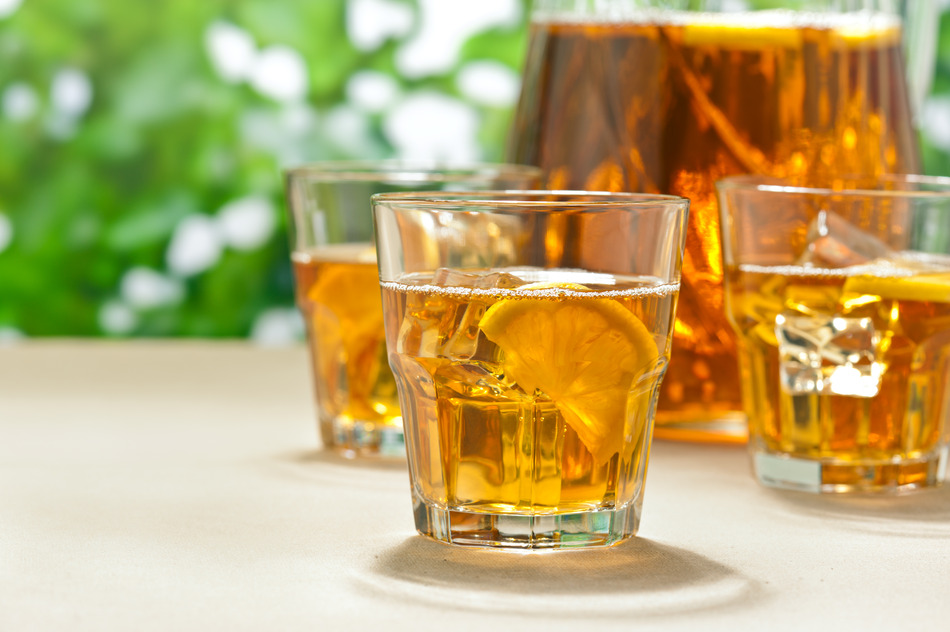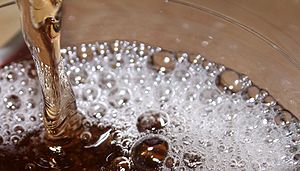
It’s Hot Outside

Iced tea poured (Photo credit: Wikipedia)
Summer arrived furiously here in Boston. We’ve had a heat wave for a while now, with its only pause when I was out in Colorado. The heat followed me out West, and returned with me to Boston. Lovely.
When the heat is this excessive we look to familiar remedies to cool off. Iced tea is often at the top of that list, and for good reason.
Iced Tea Made Simple
You have everything needed to make a refreshing, iced tea. Even better, making iced tea is pretty similar to regular tea.
Tea Concentrated
The main difference is that you will make concentrated tea. The reason is that you will cool the tea by pouring it over ice. As it melts, your iced tea becomes more and more diluted and weaker. Your concentrated tea is now normal strength.
Let’s begin.
Double The Tea
How much tea to use is a simple formula. First, decide how much iced tea you will make. How many servings will there be?
Now use twice as much tea for each serving than you normally would. This means that instead of using 1 teaspoon (or 1 bag or 2 grams of loose leaf) per serving, you will use 2 teaspoons (or 2 bags or 4 grams of loose leaf).
And don’t forget the adage for brewing a pot: one spoon per serving, then one for the pot.
Half the Water
Remember, we’re making tea concentrate. So the math is again simple. How much iced tea do you want? Now use half that amount of water.
Want one full pitcher of iced tea? Brew with half a pitcher’s worth of water. The melted ice will fill in the rest.
How to Brew
Now simply brew the tea as you normally would. Same temperatures, same timing.
For loose leaf tea:
- black tea is steeped at boiling (212°F) for 3-5 minutes
- green tea is steeped near boiling (160-180°F) for 2-4 minutes
- If using tea bags, steep for about 1 minute less.
Iced Tea Pro-Tips
Is your iced tea a little bitter or astringent? Is it a little cloudy?
This happens because of tea tannins. They give tea a puckering bitterness. Usually, it’s a sign that you steeped the tea for too long, or in water that’s too hot.
Soften the tannins with a splash of lemon juice, or a dash of baking soda. Both react with the tannins to reduce the pucker. Food science!
If your tea looks a little cloudy (and that bothers you), again a splash of lemon juice helps. Again, food science!
Sometimes the cloudiness comes from hard water reacting with tannins. Next time you brew, use filtered water.
Discuss this post on our subreddit
[related-posts]
